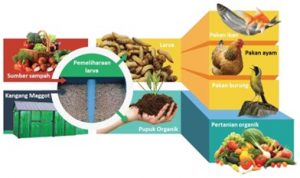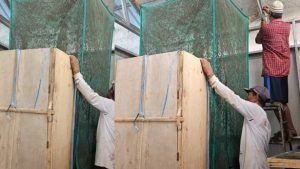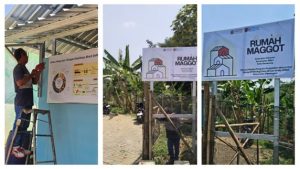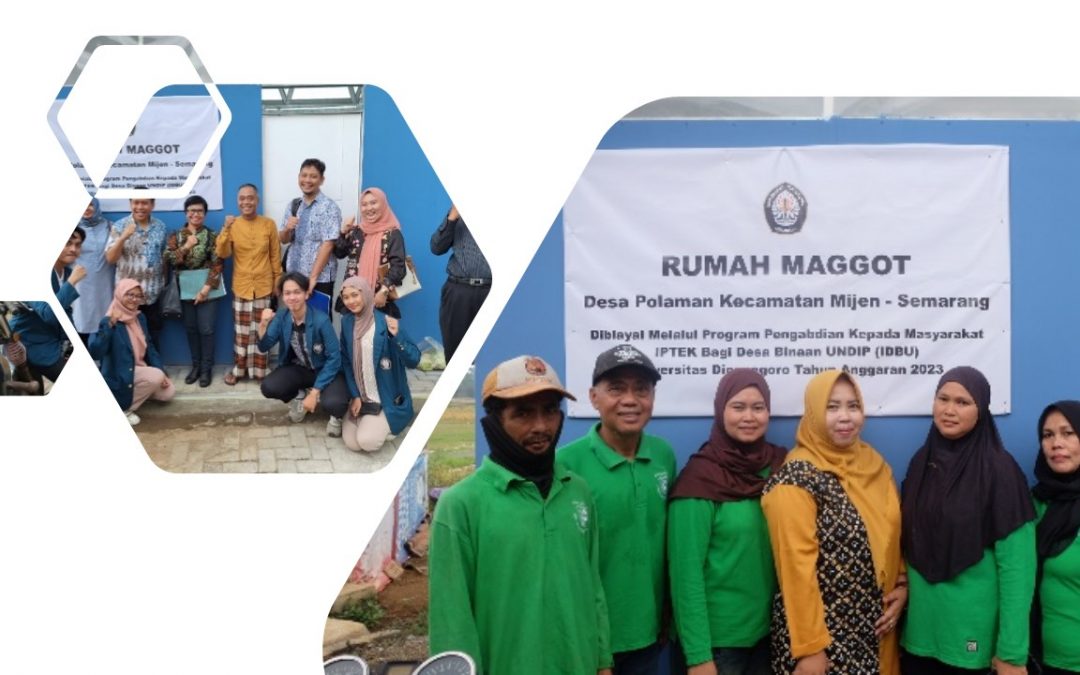Polaman Village, Mijen District, Semarang, serves as a real example of how technology-based innovation can be integrated into community life to create sustainable solutions. Through the Science and Technology for Assisted Villages Program (IDBU) of Diponegoro University (Undip), the people of Polaman Village are empowered to process organic waste using bioconversion methods with maggots. This IDBU activity demonstrates how this step serves as a tangible implementation of the Green Circular Economy, while also producing useful products such as alternative livestock feed.
Organic waste often becomes a major problem in many villages, including Polaman Village. Poorly managed waste not only pollutes the environment but also becomes a source of disease. Maggot bioconversion, using the larvae of Black Soldier Fly (Hermetia illucens), offers both a practical and innovative solution. In this process, maggots decompose organic waste, such as food scraps and kitchen waste. They efficiently transform it into high-quality organic fertilizer and maggot biomass, which is rich in nutrients.

The potential of maggot development to support a circular economy
The program begins with educating the community about the importance of organic waste management and the benefits of maggot bioconversion. With guidance from the Undip team, residents receive training on waste management, maggot cultivation, and techniques for producing animal feed from maggot biomass. In addition to training, the program introduces supporting technologies, such as organic waste fermentation tools and eco-friendly maggot cultivation enclosures. This approach not only enhances community skills but also provides direct economic benefits through the production of alternative livestock feed.
Siswo Sumardiono, the head of the IDBU service team, stated that the program focuses not only on environmental solutions but also on enhancing community capacity. “We want the people of Polaman Village to not only manage waste independently but also benefit economically. By adopting maggot bioconversion technology, the community can become pioneers in implementing the Green Circular Economy at the village level,” said Siswo. Meanwhile, IDBU team member Hermawan Dwi Ariyanto emphasized the importance of collaboration between academics and the community in creating relevant innovations. “Through a systematic and educational approach, we hope the community not only understands the concept of this technology but can also develop it sustainably. We believe Polaman Village can become an example for other villages,” said Hermawan.

The finishing process of the maggot house, phase 2
Haryono, the head of the Polaman Resik Sejahtera Waste Bank partner, expressed his appreciation for the program. He stressed that this initiative marks a significant step for the village in managing organic waste independently. “This program has greatly helped us. It not only provides a solution to the waste problem but also opens new business opportunities for the community. With maggots, we can turn organic waste into something of economic value, such as livestock feed and fertilizer. This is a very positive change for Polaman Village,” Haryono concluded. He also hopes the program will continue to develop, enabling the community to become increasingly self-reliant in waste management while also supporting the village’s economy.

The process of installing the nameplate for the maggot house
The empowerment program in Polaman Village through maggot bioconversion not only serves as an innovative solution for organic waste management but also supports the development of a sustainable local economy. Ultimately, the bioconversion process can reduce the volume of organic waste by 70-80%, thereby reducing the burden on landfill sites (TPA).


Recent Comments